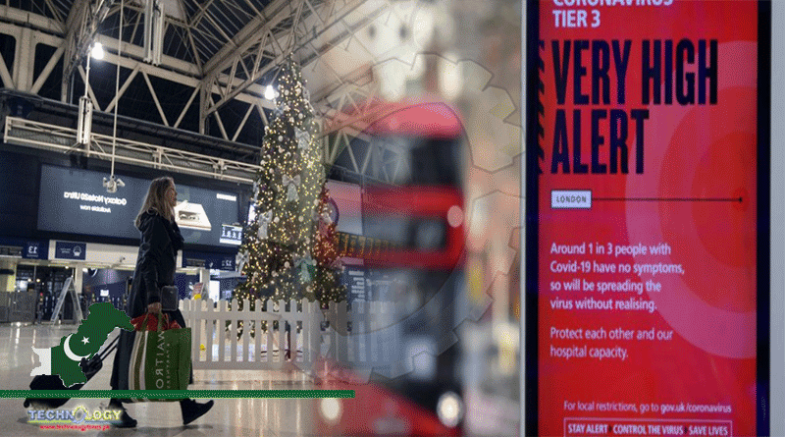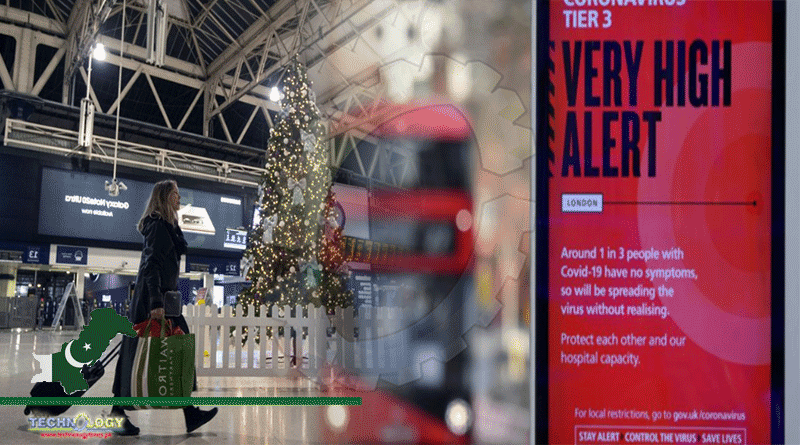Dr. Faisal Sultan said no evidence was available to them if a new strain of Coronavirus in the United Kingdom has reached Pakistan

Special Assistant to Prime Minister (SAPM) on Health Dr. Faisal Sultan on Thursday said no evidence was available to them if a new strain of SARS-CoV-2 or Coronavirus that has emerged in the United Kingdom has reached Pakistan but added that investigations and research to detect the new strain, dubbed as B117, were under way in ‘relevant population where it could possibly be present’, in Pakistan.
“We don’t have any scientific evidence available to us if the new strain from the United Kingdom has reached Pakistan. I have learnt about this claim made by Dr. Atta-ur-Rehman through the media but he has not presented any scientific evidence in this regard. But we are trying to find out if any new strain of Coronavirus from the UK or any other place has managed to reach here,” Dr. Faisal Sultan told an online seminar.
The webinar was organized by the newly-established Pakistan Society for Awareness and Community Empowerment (PACE), a platform comprising journalists, health experts, environmentalists and concerned citizens to promote awareness about science, public health, environmental and social issues in Pakistan.
The webinar was moderated by senior health journalist Muhammad Waqar Bhatti, convener PACE, while other panelists were Dr. Faisal Mahmood, an infectious diseases expert from the Aga Khan University Hospital (AKUH), Karachi, Prof. Sohail Akhtar, a pulmonologist from Indus Hospital, Karachi, and Dr. Babar Saeed Khan, public and digital health expert and CEO of Ehad Healthcare Karachi.
Dr. Faisal Sultan maintained that instead of calling it a new strain that emerged in the UK, it should be considered as a variant of the coronavirus as very minor mutations had been observed in the virus and added that it was still not clear whether it had become more contagious and infectious after mutations as was being reported. “Even British authorities don’t have any strong evidence if the virus has become more infectious”, he added.
Responding to a query regarding availability of anti COVID-19 vaccine in Pakistan, Dr. Faisal Sultan said the first deployment of the vaccine would start in the first quarter of the next year, saying efforts were underway to start vaccinating half a million frontline workers by the end of February to March 2021. “We have three to four options available regarding vaccines but we are trying to acquire more than one vaccine for our people”, he added. He maintained the COVID-19 vaccine for general population of Pakistan, between the age group of 18-60 years, would likely be available in the second or third quarter of 2021, adding that deployment of the vaccine would start in the timeframe of April to June next year.
“We are looking at European, Chinese and even Russian vaccine options but it would be a mix and match for us and we would acquire it from more than one source for our people,” he disclosed.
Commenting on re-opening of educational institutions in January this year, he said he could understand Sindh’s apprehensions on opening of educational institutions as the ratio of positivity was very high at the moment and there was no evidence available of second wave of COVID-19 slowing down. He added that a final decision whether to open educational intuitions from January 11 or not would be taken in the meeting of provincial and federal health ministers in the first week of January 2021.
Another infectious diseases expert from AKUH Dr. Faisal Mahmood said almost all the doctors in Pakistan were now seeing repeat infections of coronavirus, adding that he has personally seen 12-15 cases of re-infections at the AKUH, saying people with re-infections are coming with both mild and severe symptoms.
He maintained that despite a slight change in the genetic code of coronavirus as reported by scientists in the United Kingdom and other countries, coronavirus had still not become more virulent and lethal as it was being perceived by people, adding that all the effective vaccines would remain potent and helpful in prevention despite minor changes in its genetic material. “I would insist that it is the behaviour of humans that is making the coronavirus more lethal, and not the virus itself. If we continue to take precautions, they would remain protected from the virus,” Dr. Faisal Mahmood added.
Prof. Sohail Akhtar deplored that all political parties of the country acted indifferently when the pandemic started, adding that people should not wait for vaccine as it would take time for the vaccine to reach Pakistan. “We should try to live with COVID-19. Precautions, preventive measures and following SOPs should be our first priority”, he added.
Originally Published at The News
